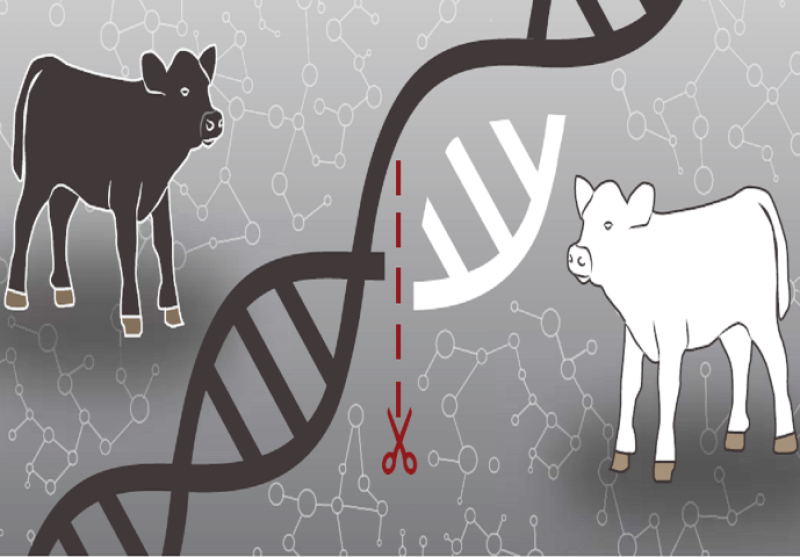The Association of Public and Land-grant Universities (APLU) and the Association of American Veterinary Medical Colleges (AAVMC) today announced the creation of a Gene Editing Task Force. Recognizing the potential for gene editing to increase food security and safety, the 11-person panel is comprised of scientists and industry leaders who will map out recommendations for regulating this emerging genomic technology in animal agriculture with appropriate safeguards and procedures.
The need for a task force was born out of a September 2019 symposium, “Gene Editing in Livestock: Looking to the Future,” which the two associations organized. During that event, 23 of the nation’s leading experts from academia, government, industry, and professional groups gathered to examine a series of questions ranging from the nature and safety of this promising technology to its ethical implications.
Symposium participants concluded that work with animal and plant genomes has vast potential for limiting disease and increasing productivity, but agreed that appropriate regulatory processes should be thoroughly considered and structured. Currently the Food and Drug Administration regulates genetic work on food animals as an “animal drug” and the USDA regulates these technologies with crops.
“This is a very promising area of biotechnology that has the potential to unleash enormous progress in terms of food production and security,” said Dr. Noelle Cockett, President of Utah State University and a renowned geneticist who is leading the task force. “Last fall’s symposium featured a series of presentations and discussions which identified and explored important questions and implications related to this emerging technology. These need to be thoughtfully considered and transformed into policy and regulatory recommendations. That’s the goal of this task force.”
…
“The potential for gene editing to dramatically boost food security globally and reduce the burden on natural resources is enormous, but it must be done carefully and ethically,” APLU President Peter McPherson said. “We are very pleased to partner with AAVMC on this task force, which is bringing together some of the foremost leaders in the world to help recommend a path for government to take to regulate this field in a way that protects all involved while allowing the science to flourish.”
The task force is expected to conduct its first virtual meeting in June 2020, and in-person meetings will be held following the relaxation of pandemic-induced social distancing protocols.
The APLU and the AAVMC decided to take action in this area following inquiries from members of Congress to Food and Drug Administration Acting Commissioner Norman E. Sharpless concerning current regulatory processes. That provided the impetus for the AAVMC and the APLU to organize the fall 2019 symposium for leading scientists and other scholars.
Read the original post































